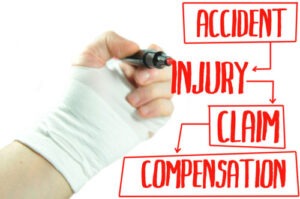

Elder abuse attorney, Michael Beckman
When 78-year-old Marilyn entered a nursing facility with a diagnosis of dementia, she was still full of fire and she could still cast a fishing rod. But within a short time of entering the facility, her family members noticed that she began taking a lot of falls.
When they would visit, they’d often discover her slumped and in a stupor. At first, they believed that her dementia was causing these problems. Later, they discovered that the facility staff had been giving Marilyn a daily dose of a powerful antipsychotic drug.
Then family members arrived to find Marilyn attempting to feed herself but unable to find her mouth with her fork. She was wearing pajamas and was covered in excrement. And then the facility’s owner informed the family that a staffer had been caught abusing Marilyn in the night, shoving the woman on the floor and then walking away as she cried.
After Marilyn died, inspectors revealed many violations at the facility, but the facility was never fined. While the story is tragic, it unfortunately isn’t unusual. Research shows that approximately 2.5 million people live in nursing or residential care facilities and are at a greater risk of being abused than elderly individuals living in a home environment.
In 2000, a researcher stated that the risk of abuse in nursing or residential facilities was greater simply because the elderly population relies entirely on staff for safety, protection, and care. If you or someone you love has suffered elder abuse, a Fort Myers nursing home abuse lawyer can help you pursue justice.
What Is Elder Abuse?
As explained by the Centers for Disease Control and Prevention (CDC), elder abuse is an intentional act or failure to act by a caregiver or another person in a relationship involving an expectation of trust that causes or creates a risk of harm to an adult who is aged 60 or older. There are several different forms of elder abuse, including:
- Physical abuse, which is described as the use of physical force that results in acute or chronic illness, bodily injury, physical pain, or death.
- Sexual abuse, which is defined as forced or unwanted sexual interaction of any kind with an elderly adult.
- Emotional abuse, which is verbal or nonverbal behavior that inflicts anguish, fear, mental pain, or distress on the elderly adult.
- Neglect, which is defined as a caretaker’s failure to provide necessary basic personal care or essential medical care.
- Financial exploitation, which is illegal, unauthorized, or improper use of the elderly adult’s financial resources.
As explained by the CDC, it is extremely important to define what elder abuse is to study the incidences of abuse and determine the magnitude of the problem in the United States.
Expect More, Receive More: Legal Support That Feels Like Family
Neglect Is Abuse, Too
The most common complaints of elder abuse in nursing facilities are the failure to meet the elder’s basic needs, including nutritional needs, medical needs, or mobility assistance. Some of the ways this can happen include:
- Failure to develop a care plan or follow the proper protocols for residents who are at a high risk for falls. A fall at a nursing home may potentially lead to an inspection violation as most falls are preventable through staff adherence to protocols and supervision. Up to a quarter of residents who fall in a skilled nursing facility will suffer a fracture or a laceration and require emergency care.
- Failure to provide additional nutrition to residents who require it.
- Failure to provide safe and sanitary living conditions.
- Failure to seek medical care if the resident is injured.
- Failure to help the resident accomplish personal hygiene tasks such as bathing or brushing their hair.
- Failure to properly move or position residents to avoid pressure sores.
- Leaving residents in soiled or wet clothing for a length of time.
Why Is Elder Abuse Likely to Go Unreported?
In spite of a growing awareness in both government and society of the problem of elder abuse in the United States, very few mechanisms exist to get an accurate accounting of how common the problem is. According to the National Council on Aging, some studies suggest that up to five million elders are abused each year and that only one in every 14 cases is reported to authorities. It is believed that most cases of elder abuse go unreported for a variety of reasons, including those described below.
It’s Easy to Blame Other Issues
Elderly adults often suffer from physical decline or cognitive issues such as dementia as a result of aging that may not only prevent them from being able to accurately describe what is happening to them, but can also mirror some of the symptoms exhibited by abuse victims. Even in hospital settings, physicians—who are, by law, required to report suspected abuse—fail to properly identify abuse cases, instead attributing the elderly patient’s symptoms to their age or other medical conditions.
Failing to Recognize Signs of Abuse
Many family members, friends, or even nursing facility staff don’t know how to identify the signs of possible abuse or what they should do if they have reason to believe that an elderly adult is being abused. Red flags that may indicate abuse include:
- Unusual changes in behavior, mood, or sleep habits.
- Fear, anxiety, depression, or isolation.
- Broken bones, bruises, welts, cuts or sores.
- Untreated bedsores.
- Torn or bloody underclothing.
- Unexplained sexually transmitted diseases.
- Dirtiness, poor nutrition, or dehydration.
- A caretaker’s refusal to allow the elder to spend time alone with family or friends.
- A caregiver who exhibits negative behavior toward the elder, including threatening, bullying, or belittling the elder.
- Unsanitary living conditions.
- Lack of medical aids the resident needs, such as glasses, a walker, hearing aids, or dentures.
- Unusual changes in bank account or money management, wills, or other financial documents.
- Forged signatures on financial documents.
- Unpaid bills.
Fear of Retribution
While declining cognitive abilities may leave many elders unable to report abuse, another reason elders may be reluctant to talk about what is happening to them is fear of retribution. This is true for abuse in home settings as well as in skilled nursing facilities. This may be particularly true if the abuser is the elder’s primary caretaker. In institutional settings, fear of retribution may also cause residents to feel uncomfortable about reporting abuse that they witness other residents experiencing. It is hard to report abuse by someone upon whom you are completely dependent. Some of the questions an elder may be asking themselves include:
- Who is going to take care of me if I report this behavior?
- Will my caretaker be angry?
- If I report abuse, will it be investigated? Will my abuser be told that I filed the report?
- If I report my abuser, will they still be responsible for my care? Will I be subjected to worse treatment or other punishment for reporting?
- If I report the abuse of another resident, will the caretaker be disappointed in me? Will they lose their job? Will I be subjected to the same abuse?
- If I report that my family member or caretaker is abusing me at home, will this cause me to have to move to an institution for care?
One of the most prevalent forms of elder abuse is emotional abuse, which may include threats or intimidation. One of the red flag behaviors that may indicate elder abuse is a caretaker who is reluctant to allow the elder to spend time alone with visiting family or friends.
Fear of retribution may also be a factor in the failure of staff to report suspected abuse by other staff members. Facility employees may worry that reporting a coworker will cause a time-consuming investigation, that supervisors won’t believe the allegations or that supervisors will take the abuser’s side and that making the report could impact the reporting employee’s status at the facility.
Shame
Many elders do not report abuse because they are ashamed that they were unable to defend themselves against the abuse or that someone took advantage of them. This is an abuse response common not just with elders but with victims of either gender in all age demographics.
Inadequate Staffing at Nursing Facilities
Inadequate staffing is a common issue in nursing facilities. Not only do facilities often struggle to maintain the necessary staff to resident ratio that can best meet the needs of all of the facility’s residents, but understaffed facilities may also:
- Fail to properly conduct background checks on applicants for available positions, including checking for a history of perpetrating abuse in an institutional setting or checking to ensure that the applicant actually has the training that they claim to have when applying for the job.
- Fail to properly train staff to follow care plan instructions for high risk residents, including those who have an increased fall potential, those who need assistance with toileting and bathing, those who need medication, and those with additional nutritional requirements.
- Fail to adequately investigate and report all allegations of abuse made by residents and their family members against staff.
- Fail to properly train staff to detect and promptly report signs of abuse.
- Fail to hire a sufficient number of staff members to prevent resident neglect, leading to overworked or frustrated staff, which may increase the likelihood of abuse.
Not Knowing the Reporting Process
If your loved one is being abused in a facility setting, who do you tell? If, as a staff member at a facility, you witness abuse or you’re told about abuse by other staff members, how do you report it? Often, abuse goes unreported simply because those who are aware of the abuse don’t know who they should tell. There are actually several options for reporting abuse, including:
- If someone is in immediate danger or they need immediate medical care, call 911.
- If you suspect abuse of an elder in your community, you can make a report to your local Department of Children and Families office. In Florida, you can also report elder abuse online here, or through the elder abuse hotline at 1-800-962-2873.
- You can also file a report at the police department about suspected elder abuse taking place at a home or facility in that police department’s jurisdiction.
- You can make a report to your local long-term care ombudsman, who is a government-employed advocate for elderly nursing facility residents who monitors the conditions at long-term care facilities and receives complaints about those facilities.
- You can report your suspicions to a supervisor at the facility where your loved one resides or to the elder’s physician. Facility supervisors and physicians are mandated reporters in every state in the nation. What this means is that these individuals are required to report suspicions or allegations of abuse to the proper authorities. Florida law establishes that everyone, no matter what their relationship is to the elderly person, is a mandated reporter. This means that anyone who knows about or suspects that elder abuse or neglect is occurring in Florida is required to report it.
What’s Next?
If your loved one is abused or neglected in a skilled nursing facility, the problem doesn’t end when the report is filed. The elderly adult may be suffering from physical and emotional injuries from the abuse, requiring medical treatment or mental health care. Florida law allows the victims of elder abuse to seek compensation for their injuries through a personal injury lawsuit to recover the expenses they have incurred due to their abuse-related injuries. If the abuse or neglect resulted in your loved one’s death, you may also be eligible to file a wrongful death lawsuit. Either of these types of lawsuits can be fully explained by an experienced elder abuse attorney, who can help you to understand your legal options.
Fort Myers, FL 33919






